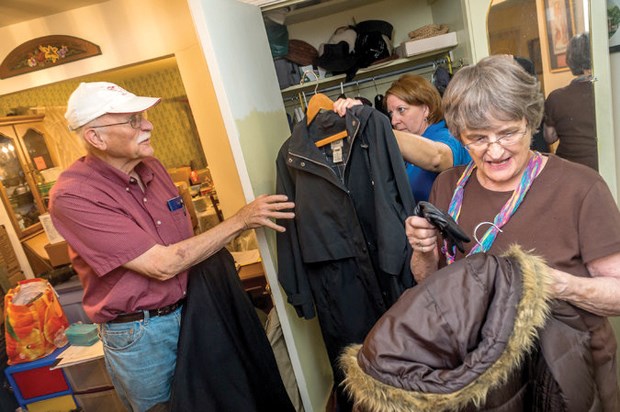|
|
Does cleaning the house drain your energy? Do your belongings play hide and seek with you?
Homes with too much stuff make cleaning tough. Items need to be constantly shoved into the storeroom. Misplaced cutlery takes forever to find.
The issue is exacerbated for seniors, who may not have the physical strength to cope with the mess. Moreover, seniors are often faced with the need to downsize.
Susan Borax, co-founder of Good Riddance, a Lower Mainland-based company specializing in helping people get organized, said downsizing is a “daunting process for anyone at any age.”
She said even though the process is challenging and messy, the results are worth it.
Many people are emotionally attached to their belongings, and this makes it hard for them to be objective about decluttering said Borax. People gather things thinking they will use them, but don’t, she added.
She said, seniors tend to slow-down with age and are not physically able to maintain their homes. According to goodriddance.ca, many residential houses are not designed for the elderly who generally have reduced mobility or limited range of reach.
It is important to give yourself enough time and maintain a strong focus when downsizing said Borax. People should start clearing their houses six months to one year before they intend to move, she said. Moving systematically from one room to another will make the process much lighter.
The first step in downsizing is to distinguish between how much you will “need” and what will go, according to the size of the home, Borax said. Sell, donate or recycle unwanted items rather than dumping them at the landfill she added.
In her article, House Resolution #1: Easy De-Cluttering for 2013, Borax states types of CRUD (completely ridiculous useless debris) that can be decluttered:
1) We all collect durable goods that could be used later on, instead they just keep piling up. This includes plastics bags and tub-wares which must be recycled.
2) Items sitting in storerooms, even on shelves that are beyond repair, including broken old furniture, electronics that are not supported anymore by manufacturers. These must go for good.
3) Many parents hold on to children’s items thinking the kids will use them one day, even though they haven’t been touched in years.
4) There are those belongings that sit on top of shelves and keep peeking down, or sit in a corner of your store room just taking up space. Create more space, get rid of them.
Seniors must set realistic expectations if they are “disappointed with the value of their used goods,” she added.
Borax said it is always a smart choice to move items in large quantities using trucks; 40 boxes per truck is a good number.
Borax’s solution to avoid cluttering is to stop piling up unwanted items: avoid shopping for items you don’t need. Always follow this rule of thumb: when something comes in, then something must go out.



